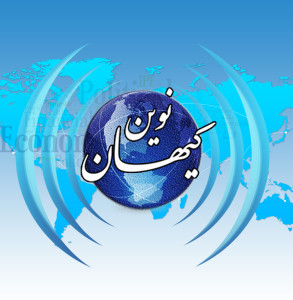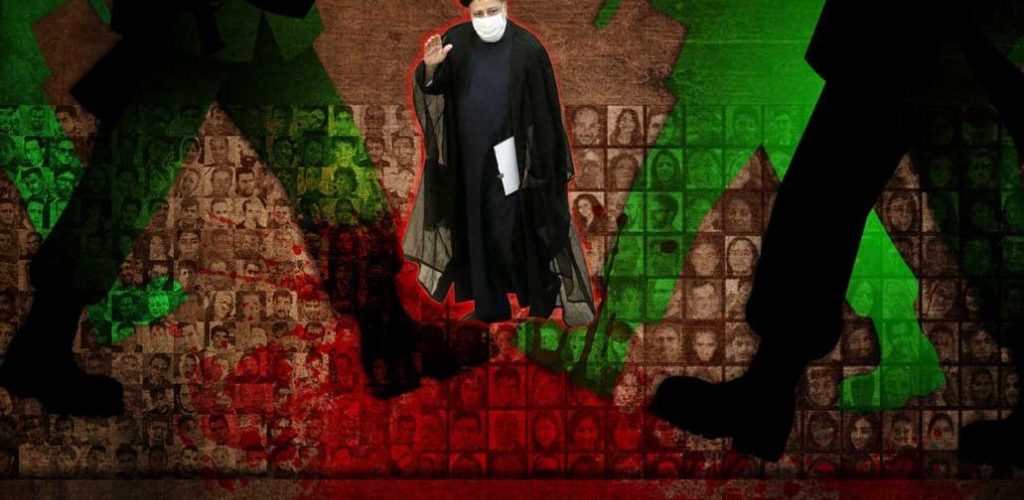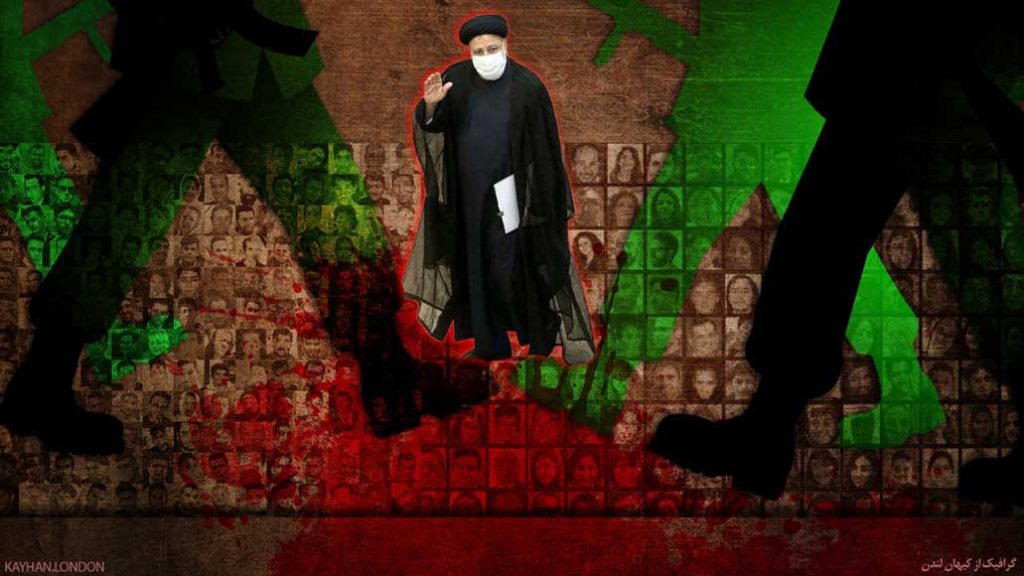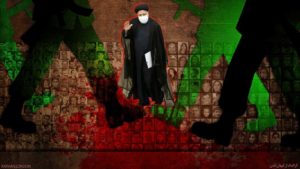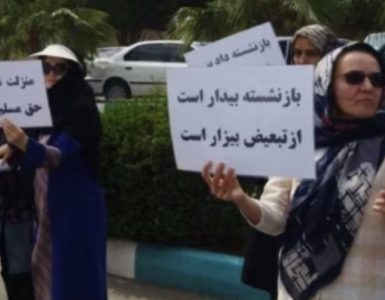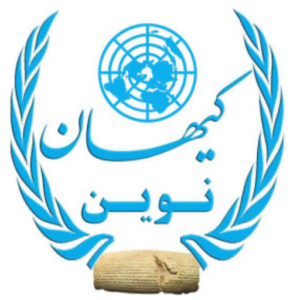در هفتههای گذشته تنگتر شدن فضای سیاسی و اجتماعی کشور بیش از پیش به چشم میخورد. فشارهای امنیتی و قضایی بر فعالان سیاسی مخالف و منتقد نظام با روی کار آمدن دولت سیزدهم به ریاست «قاضی مرگ» افزایش یافته است.
کیهان نوین: فشارهای امنیتی و قضایی بر فعالان مدنی و سیاسی مخالف و منتقد نظام با روی کار آمدن دولت سیزدهم به ریاست «قاضی مرگ» افزایش یافته است.
از والدین دادخواه خون فرزندان برومند تا وکلای دادخواه سلامت مردم دردمند، همگی با اتهامات واهی و احکام قضایی روبرو هستند و زندگی زندانیان سیاسی نیز به اشکال مختلف در معرض خطر قرار دارد.
اگر اصلاحطلبان در دولت حسن روحانی خواهان «برخورد تند» با معترضان میشدند حالا ابراهیم رئیسی با کابینه و نهادهای اداری متشکل از چهرههای امنیتی و پاسدار، برآوردن خواست آنها را در دستور کار قرار داده است.
در کنار وزرا و مجلسنشینان پاسدار که در ریاست نهادهای مختلف نیز جاسازی شدهاند، مقامات استانی و شهری نیز یکی یکی به فرماندهان و اعضای سپاه پاسداران انقلاب اسلامی سپرده میشود.
سهم ویژه و گستردهی سپاهیان پاسدار در دولت سیزدهم بیانگر این است که این نهاد نامتعارف و موازی ایدئولوژیک بدون «کودتا»یی که درباره آن هشدار داده میشد، دولت را نیز به دست گرفته است!
همچنین گزارشها از احضار و محاکمه فعالان مدنی و صنفی، حضور پررنگ نیروهای ضدشورش در تجمعات صنفی و حتا فشار بر زندانیان سیاسی که در حال گذراندن دوران حبس هستند خبر میدهند. از سوی دیگر جاگذاری مقامات نظامی سپاه پاسداران انقلاب اسلامی در مقامهای اجرایی و مدیریتی بدون سروصدا در انجام است. جمهوری اسلامی از یکسو در برابر اقشار مختلف مردم معترض در داخل و از یکسو برای پیشبُرد برنامههایش در مذاکره هستهای، تاکتیک تازهای را در پیش گرفته که سیدعلی خامنهای طراح و سیدابراهیم رئیسی مجری آن است.
در هفتههای گذشته فشارها بر اقشار و گروههای معترض که هر کدام به شکلی ناکارآمدی حکومت و پیامدهای حکمرانی جمهوری اسلامی را برجسته میکنند افزایش یافته و فضا برای فعالان سیاسی و مدنی تنگتر شده است. فعالان صنفی که به دلیل مشکلات اقتصادی و حقوق عقب افتاده و ناچیز بودن درآمدها اعتراض میکنند نیز با تهدیدهای امنیتی روبرو شدهاند و آنان که در سازماندهی این تجمعات صنفی نقش دارند، به نهادهای امنیتی احضار یا بازداشت میشوند.
حتا والدین دادخواه خون فرزندان برومند تا وکلای دادخواه سلامت مردمِ دردمند نیز همگی با اتهامات واهی و احکام قضایی روبرو هستند و یا مانند منوچهر بختیاری به چند سال زندان و ممنوعیت خروج از کشور محکوم شدهاند یا مانند آرش کیخسروی و مصطفی نیلی، دو وکیل دادگستری، از سوی بازجوها به صدور احکام سنگین قضایی تهدید میشوند.
زندانیان سیاسی، زیر تیغ نظام در زندان!
جمهوری اسلامی در هفتههای گذشته بار دیگر تشدید سرکوب را در دستور کار قرارداده و زندانیان سیاسی نیز که بر اساس قوانین خود نظام باید فقط دوران حبس خود را در زندان بگذراند، زیر فشارهای شدید قرار گرفتهاند و زندگی آنها به اشکال مختلف در معرض خطر قرار دارد. در روزهای گذشته با همکاری مسئولان زندان تهران بزرگ (فشافویه) ۱۴ زندانی سیاسی مورد ضرب و جرح با چاقو و قمه و شیشه شکسته قرار گرفتند. در این اقدام دستکم پنج زندانی به شدت مجروح شده و آسیب دیدند. اسماعیل گرامی و شاپور احسانی راد با ۶۷ و ۶۲ سن دو فعال کارگری زندانی هستند که در این حمله آسیب دیدند.
این در حالیست که محمد مهدی حاجمحمدی رئیس سازمان زندانها در صفحه توییتر خود ضمن تایید حمله سه زندانی شرور و مسلح به سلاح سرد به زندانیان سیاسی در زندان تهران بزرگ چنین توجیه کرده که «زندان محفل فرهیختگان نیست بلکه محفل مجرمان است و با وجود کنترلها اختلاف و تنش بین آنها دور از انتظار نیست!»
یکی دیگر از اقداماتی که جمهوری اسلامی در حال عادی نشان دادن آن در افکار عمومی است جان باختن مشکوک زندانیان در زندان به بهانههایی چون «مسمومیت دارویی» است. اقدامی که سازمان عفو بینالملل آن را «ناپدیدسازی قهری» خوانده و در تازهترین مورد درباره جان باختن شاهین ناصری، زندانیِ شاهد شکنجههای نوید افکاری، از سوی مقامات نظام ادعا شده است.
«تدبیر» نظامی در مقابل مردم!
یکی دیگر از تغییرات محسوس در هفتههای اخیر، نظامیتر شدن فضای شهرهاست. این موضوع در تجمعات صنفی نیز کاملا مشهود است. پیشتر چنین به نظر میرسید که دولت روحانی در آخرین ماههای فعالیت، از اعتراضات مردم به ویژه اصناف به عنوان ابزار فشار بر دیگر جناحهای حکومت و شخص رهبر جمهوری اسلامی استفاده میکرد و وزارت کشور درباره بگیر و ببند تجمعکنندگان چندان سختگیری به خرج نمیداد. یکی از بارزترین نمونهها به تظاهرات بازاریان معترض پاساژ علاءالدین در تهران در پی قطع مکرر برق مربوط میشود که چهارم امرداد ۱۴۰۰ و دو هفته پیش از برگزاری مراسم تحلیف سیدابراهیم رئیسی روی داد. با وجود اینکه بخشی از معترضان شعارهای سیاسی و علیه جمهوری اسلامی سر دادند اما نیروی انتظامی تنها از دور نظاره میکرد.
پس از روی کار آمدن دولت «قاضی مرگ» اما «تدبیر» به همان روالی برگشت که در دولت روحانی بود! اگر اصلاحطلبانی چون عباس عبدی در دولت حسن روحانی خواهان «برخورد تند» با معترضان میشدند، حالا ابراهیم رئیسی با کابینه و نهادهای اداری متشکل از چهرههای امنیتی و پاسدار، برآوردن خواست آنها را در دستور کار قرار داده است.
حضور چهرههای امنیتی و پاسدار در دولت سیدابراهیم رئیسی از ابتدا در کابینه و اعضای هیئت دولت چشمگیر بود اما ظاهرا این کافی نیست و در کنار وزرا و مجلسنشینان پاسدار که در ریاست نهادهای مختلف نیز جاسازی شدهاند، مقامات استانی و شهری نیز یکی یکی به فرماندهان و اعضای سپاه پاسداران انقلاب اسلامی سپرده میشود.
هفته گذشته یعقوبعلی نظری فرمانده سپاه پاسداران انقلاب اسلامی در استان «خراسان رضوی» به عنوان استاندار جدید این استان منصوب شد. احمد احمدیزاده استاندار جدید بوشهر هم در گذشته از فرماندهان بلندپایه سپاه پاسداران بوده است.
این در حالیست که احمد وحیدی وزیر کشور، رستم قاسمی وزیر راه و شهرسازی، عزتالله ضرغامی وزیر فرهنگ و گردشگری از اعضای سپاه پاسداران هستند. حسین امیرعبداللهیان وزیر امور خارجه نیز از نیروهای نزدیک به سردار قاسم سلیمانی و نیروی قدس سپاه پاسداران است. محمد مخبر دزفولی که اکنون معاون اول ابراهیم رئیسی است از مدیران بهداری سپاه پاسداران بوده. مسعود میرکاظمی رئیس سازمان برنامه و بودجه نیز از فرماندهان پیشین سپاه پاسداران انقلاب اسلامی است.
از سوی دیگر وزارت اطلاعات دولت سیزدهم به اسماعیل خطیب از سازمان حفاظت اطلاعات قوه قضاییه و وزارت دادگستری سیزدهم به حسن رحیمی معاون منابع انسانی وو نیروی فرهنگی قوه قضاییه سپرده شده است. همچنین معاون اقتصادی سیدابراهیم رئیسی محسن رضایی، و مشاور رئیسی در در امور مناطق آزاد تجاری– صنعتی نیز سعید محمد است که هر دو از سرداران سپاه پاسداران انقلاب اسلامی هستند.
سهم ویژه و گستردهی سپاهیان پاسدار در دولت سیزدهم بیانگر این است که این نهاد نامتعارف و موازی ایدئولوژیک بدون «کودتا»یی که درباره آن هشدار داده میشد، دولت را نیز به دست گرفته است!
چنین آرایشی در کنار حضورمحمدباقر قالیباف سردار سپاه در ریاست مجلس شورای اسلامی و غلامحسین محسن اژهای یکی از سرکوبگرترین مهرههای قضایی، به عنوان رئیس قوه قضاییه نشانگر «تدبیر» کنونی علی خامنهای در آرایش نیروهاست.
«تدبیر» در ناامیدی: تشدید سرکوب!
در این میان پرسش اینست که رهبری جمهوری اسلامی با سیدابراهیم رئیسی و محمدباقر قالیباف و غلامحسین محسنی اژهای در رأس سه قوهی زیر دستش چه اهدافی را دنبال میکند؟
روشن است که علی خامنهای میخواهد از سه کُنجی که تحریمها نظام را در آن قرارداده خارج شود اما بدون ظاهرا عقبنشینی در پشت میز مذاکره که استیصال و ناچاری ارزیابی شود. در نتیجه از یکسو ادعای «عجله نداشتن برای مذاکره» را تبلیغ میکند و از سوی دیگر نیاز دارد فضای کشور را آرام و بدون بحران نشان دهد. به گمان وی، یکدست شدن قوا با نیروهایی که از او بیشترین حرفشنوی را دارند، مدیریت داخلی کشور را برای رسیدن به این هدف آسان میکند.
به نظر میرسد رستم قاسمی فرمانده سپاه قدس، بازوی خارجی سپاه پاسداران انقلاب اسلامی، که قرار بود به وزارتخانه نفت برود، به دلیل پایین بودن احتمال برداشته شدن تحریمها توسط دولت جو بایدن بود که به وزارت راه و شهرسازی رفت. خامنهای میداند برای پیشبرد اهداف نظام در مواجهه با غرب و در روند مذاکرات، باید فضای داخلی کشور را آرام و فاصله عمیق جامعه با نظام را کم نشان دهد. از آنجا که مهمترین عامل نارضایتیهای داخلی و اعتراضات سراسری، مشکلات اقتصادی و معیشتی است، پس اقتصاد باید بهبود پیدا کند. تنظیم بازار مسکن حتا به صورت موقت و کاذب، یکی از هدفهای مهم دولت «قاضی مرگ» است تا هم با پروژههای نامؤثر خانهسازی نرخ اشتغال بالا برود و هم از طریق این پروژهها، بخشی از نقدینگی جامعه گردآوری شده و برای امور جاری توسط دولت هزینه شود.
تأمین کالاهای اساسی از طریق واردات و فروش خاموش نفت تحریمی نیز به «برادران قاچاقچی» سپرده شده که در این زمینه مهارت دارند. از همین رو سعید محمد به عنوان مشاور ویژه اقتصادی رئیسی و دبیر شورای عالی مناطق آزاد تجاری- صنعتی (مبادی قاچاق) منصوب شد!
حضور سپاه پاسداران انقلاب اسلامی در حوزه مناطق آزاد تجاری (مبادی قاچاق) با همکاری غلامحسین محسنی اژهای در رأس قوه قضاییه، گروههای مافیایی فعال مربوط به جناحهای دیگر نظام را زیر فشار قرار میدهد تا در نمایش مبارزه با فساد برای فریب افکار عمومی، از یکسو دست دولت و «برادران قاچاقچی» کاملا باز باشد و از سوی دیگر با بازداشت و محاکمه رقبا، جامعه «مبارزه با فساد» را باور کند! حال آنکه با این «تدبیر» فقط تسلط بر مناطق آزاد که به گذرگاه قاچاق و فساد اقتصادی جریانهای مختلف حکومت تبدیل شده، «یکدست» میشود!
اینکه این «تدبیر» تا چه اندازه به کار ماندگاری نظام بیاید، بعید به نظر میرسد. اما اینکه برای اجرای این «تدبیر»، فشار بر مردم معترض و منتقدان و مخالفان حتا در زندانها بیش از پیش افزایش خواهد یافت، موضوعی کاملا آشکار است.
The government of the judge of death and the Revolutionary Guards; The last curtain of the system to suppress the people who do not want it

